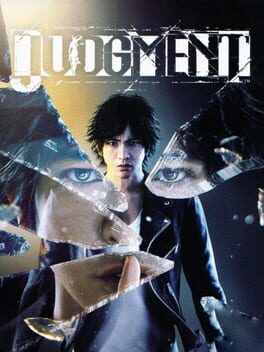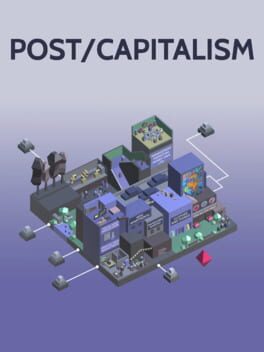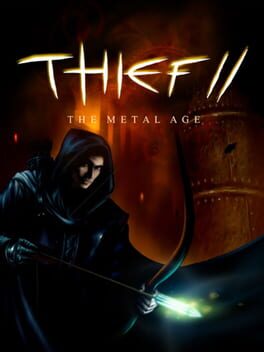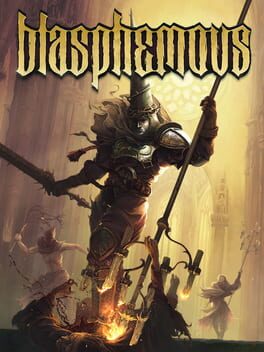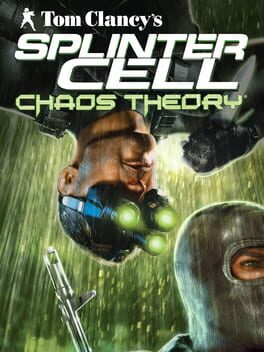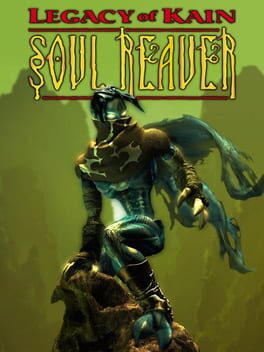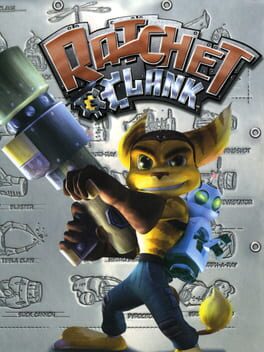ProudLittleSeal
3733 Reviews liked by ProudLittleSeal
Judgment
2018
Is good writing too high of an ambition?
I was listening to Jacob Geller and Blake Hester's Something Rotten podcast, where the two men discuss Max Payne 3 and the two Kane & Lynch games. Geller brought up that he heard Hester share a hot take: that the best video game stories are only, barely, on par with mediocre movies and TV.
My response to this take evolved through three stages;
1) "omg no way! I totally teared up playing Red Dead Redemption and The Last of Us!"
2) "hmm, yeah. You're write. Games suck at writing. It's a special skill that game developers aren't necessarily equipped for. To paraphrase the oft-quoted John Carmack, story in games is like story in porn. Most games are not developed from a script first, but with a series of system and mechanic documents in place first with the story and writing poured on after like a cheap, cold tin of tomato sauce over a hot plate of pasta (at best, maybe it's more like a little garnish)."
3) "you know what, who cares? Most movies and TV have mediocre writing. Green Book won for best Original Screenplay at the 2019 Oscars. The Avengers movies made like a billion dollars. Writing isn't easy for anyone, no matter the medium. Not to mention, film, to me, is like a sensory artform. Story is cool but movies aren't literature. And even literature can appeal on prose over narrative and "character development". But cinema to me is all light and montage. My favourite movie is Michael Mann's Miami Vice, and I can't explain why because I've never really been able to properly articulate the feeling that movie's digital grain gives me. It is quite literally "the vibe". The work of filmmakers like Paul WS Anderson, Edward Yang and Pedro Costa excite me, too, purely on a compositional level. Late era Tony Scott's avant garde editing style isn't something I am equipped to talk about, all I know is when I see it I go gaga. Similarly, the collaborative work of Martin Scorsese and editor Thelma Schoonmaker just tickles a part of my brain - and I could spend 1000 years still fail to explain why and how the rhythms of their cuts dazzle me.
Anyway, my point is, I don't come to film for writing, so why should I come to games for it? I ask myself this because good game writing is still, probably, what I consider the biggest hook. Or I consider character writing, specifically, a big hook. I need someone and something to care about to pull me through to a game's conclusion... at least most of the time. I certainly don't come to games for gameplay. I mean, I do, but not really. I don't really come to games for complex gameplay, at least. I don't play games to master systems. I do return to shooters and sword-swinging adventures a lot but that's partly because, with brawlers aside, that's 2/3s of combat in combat-centric games.
What I am beginning to think, however, is maybe I come to games for the vibes; for the same visual sensory appeal I get from movies. I come to games for - oh wow, I don't want to say it... - the digital spaces. The way games create architecture and worlds and allow you the freedom to explore rich, detailed spaces is so exciting. I don't want to live in these worlds, but I want to occupy them the same way I want to occupy the Baltimore depicted in The Wire or the west from Blood Meridian. I love reading because I love when my imagination works, filling in all the visual details around the worlds. When I read Raymond Chandler and I picture 30s/40s California; when I read The Wheel of Time and picture the endless Aiel Waste (wow, I read so little, these aren't great references lol). I love how games can even better render those details, and then let you literally, physically explore them. In a way, games are living dreams.
I've lost track of a coherent thesis here.
To swing it to Judgment. I don't know that Judgment is well written. It hinges on a lot of cliches and rote twists. The dialogue isn't particularly remarkable. Characters are complex only in the sense that they're all morally grey, and the ones who aren't are just good people. Its whole deal can be summed up as "isn't the truth really cool?" But, man, as a vibe, I dug it a lot. I loved noir twinges. The smoky, cramped, humid detective office. The stale, sterile courtrooms and hospital hallways. The busy, glittery Kamurocho streets. I love the soap opera plot. I like a good mystery, and there aren't many (non-visual novel) games wholly dedicated to unravelling a mystery. At the end of the day, it is less Raymond Chandler and more daytime court TV, but I was pretty damned hooked.
A lot of what Judgment exemplifies best is what I do consider game writing though. And it's not the execution I appreciate but the set up. I love when game presents the player with a fully fleshed out, lived-in universe, especially when that universe has a footing in the real world, depicting real people/cultures. A love when a game presents you with a character who has their own thoughts and feelings and history that exists beyond the player. Judgment is maybe the best example of what I think of when I hear the term "immersive sim". Not just because the game is maybe the best execution of one of the immersive sim genre's grandfathers, Warren Spector's idea for the "one perfect block" concept. Judgment isn't exactly a living sim. And it's not an open world game per se, so it doesn't really even matter. sure, you can't interact with everyone and everything. But you walk the streets of Kamurocho and you get a real sense of place and atmosphere and life that exists independent of your actions. You can walk into enough interiors, and around plenty of pedestrians to feel like you're in a real city. It's small enough, too, to memorise after 10-ish hours of playtime.
I think in contrast, too much of the actual immersive sim genre is dedicated to bringing to life unreal places to life, not reality and of its sober doldrums. It's a genre dedicated to placing very specific characters on dedicated paths purely to serve as obstacles for the player. Every nook and cranny is explorable but only because it wants you to collect things, not take in and truly occupy those spaces. It presents you with alternate paths with both violent and stealthy, pacifist routes ahead because it wants you to feel catered to, because it values choice, even though it cannot admit choice in video games is always a carefully, constructed lie/illusion. It's a genre with its head in the clouds, and you hoisted up on its shoulders in effort to make you feel important.
I don't know how I got here but I think a really "immersive" games is one that places you in a real location, with real history, and most importantly in the shoes of a real, pre-spec'd character - one, who again, let's say has their own character sheet and could - at least, and most certainly - in the game world exist independently of the player. I think of games like Disco Elysium, the little bit of The Witcher 2 I played hours before Judgment, Red Dead Redemption II (and Red Dead Redemption). For me, when I want to roleplay, I want to be somebody else, and not in the Ready Player One/Comic-Con cosplay way where I am me but with wackier hair and nicer clothes, or one where I am, like, Godzilla. I want to be a whole person. To me, that's immersion - when a game can successfully transfer that feeling over to you and make you feel like another person for 10/20/40+ hours. Judgment does that, in my opinion. Takayuki Yagami isn't some amazingly written individual, but the game goes to lengths to give him a history and a personality and reasons to care about the people around him. I don't care that it's not as good as The Sopranos but it's as good as a show like Justified or Bosch - neither of which I think of as mediocre (actually two of my all-time fave shows) - and I think that's a safe, reasonable ambition most character-action AAA games can aim for. The best games can be as well-written as Bosch... if they want to be. Not that they really have to be.
Maybe I am overrating this but the experience reminded me a lot of what I got out of Final Fantasy VII Remake and Metro Exodus. That's starting to become the baseline for what I consider a good, modern game, I suppose.
I was listening to Jacob Geller and Blake Hester's Something Rotten podcast, where the two men discuss Max Payne 3 and the two Kane & Lynch games. Geller brought up that he heard Hester share a hot take: that the best video game stories are only, barely, on par with mediocre movies and TV.
My response to this take evolved through three stages;
1) "omg no way! I totally teared up playing Red Dead Redemption and The Last of Us!"
2) "hmm, yeah. You're write. Games suck at writing. It's a special skill that game developers aren't necessarily equipped for. To paraphrase the oft-quoted John Carmack, story in games is like story in porn. Most games are not developed from a script first, but with a series of system and mechanic documents in place first with the story and writing poured on after like a cheap, cold tin of tomato sauce over a hot plate of pasta (at best, maybe it's more like a little garnish)."
3) "you know what, who cares? Most movies and TV have mediocre writing. Green Book won for best Original Screenplay at the 2019 Oscars. The Avengers movies made like a billion dollars. Writing isn't easy for anyone, no matter the medium. Not to mention, film, to me, is like a sensory artform. Story is cool but movies aren't literature. And even literature can appeal on prose over narrative and "character development". But cinema to me is all light and montage. My favourite movie is Michael Mann's Miami Vice, and I can't explain why because I've never really been able to properly articulate the feeling that movie's digital grain gives me. It is quite literally "the vibe". The work of filmmakers like Paul WS Anderson, Edward Yang and Pedro Costa excite me, too, purely on a compositional level. Late era Tony Scott's avant garde editing style isn't something I am equipped to talk about, all I know is when I see it I go gaga. Similarly, the collaborative work of Martin Scorsese and editor Thelma Schoonmaker just tickles a part of my brain - and I could spend 1000 years still fail to explain why and how the rhythms of their cuts dazzle me.
Anyway, my point is, I don't come to film for writing, so why should I come to games for it? I ask myself this because good game writing is still, probably, what I consider the biggest hook. Or I consider character writing, specifically, a big hook. I need someone and something to care about to pull me through to a game's conclusion... at least most of the time. I certainly don't come to games for gameplay. I mean, I do, but not really. I don't really come to games for complex gameplay, at least. I don't play games to master systems. I do return to shooters and sword-swinging adventures a lot but that's partly because, with brawlers aside, that's 2/3s of combat in combat-centric games.
What I am beginning to think, however, is maybe I come to games for the vibes; for the same visual sensory appeal I get from movies. I come to games for - oh wow, I don't want to say it... - the digital spaces. The way games create architecture and worlds and allow you the freedom to explore rich, detailed spaces is so exciting. I don't want to live in these worlds, but I want to occupy them the same way I want to occupy the Baltimore depicted in The Wire or the west from Blood Meridian. I love reading because I love when my imagination works, filling in all the visual details around the worlds. When I read Raymond Chandler and I picture 30s/40s California; when I read The Wheel of Time and picture the endless Aiel Waste (wow, I read so little, these aren't great references lol). I love how games can even better render those details, and then let you literally, physically explore them. In a way, games are living dreams.
I've lost track of a coherent thesis here.
To swing it to Judgment. I don't know that Judgment is well written. It hinges on a lot of cliches and rote twists. The dialogue isn't particularly remarkable. Characters are complex only in the sense that they're all morally grey, and the ones who aren't are just good people. Its whole deal can be summed up as "isn't the truth really cool?" But, man, as a vibe, I dug it a lot. I loved noir twinges. The smoky, cramped, humid detective office. The stale, sterile courtrooms and hospital hallways. The busy, glittery Kamurocho streets. I love the soap opera plot. I like a good mystery, and there aren't many (non-visual novel) games wholly dedicated to unravelling a mystery. At the end of the day, it is less Raymond Chandler and more daytime court TV, but I was pretty damned hooked.
A lot of what Judgment exemplifies best is what I do consider game writing though. And it's not the execution I appreciate but the set up. I love when game presents the player with a fully fleshed out, lived-in universe, especially when that universe has a footing in the real world, depicting real people/cultures. A love when a game presents you with a character who has their own thoughts and feelings and history that exists beyond the player. Judgment is maybe the best example of what I think of when I hear the term "immersive sim". Not just because the game is maybe the best execution of one of the immersive sim genre's grandfathers, Warren Spector's idea for the "one perfect block" concept. Judgment isn't exactly a living sim. And it's not an open world game per se, so it doesn't really even matter. sure, you can't interact with everyone and everything. But you walk the streets of Kamurocho and you get a real sense of place and atmosphere and life that exists independent of your actions. You can walk into enough interiors, and around plenty of pedestrians to feel like you're in a real city. It's small enough, too, to memorise after 10-ish hours of playtime.
I think in contrast, too much of the actual immersive sim genre is dedicated to bringing to life unreal places to life, not reality and of its sober doldrums. It's a genre dedicated to placing very specific characters on dedicated paths purely to serve as obstacles for the player. Every nook and cranny is explorable but only because it wants you to collect things, not take in and truly occupy those spaces. It presents you with alternate paths with both violent and stealthy, pacifist routes ahead because it wants you to feel catered to, because it values choice, even though it cannot admit choice in video games is always a carefully, constructed lie/illusion. It's a genre with its head in the clouds, and you hoisted up on its shoulders in effort to make you feel important.
I don't know how I got here but I think a really "immersive" games is one that places you in a real location, with real history, and most importantly in the shoes of a real, pre-spec'd character - one, who again, let's say has their own character sheet and could - at least, and most certainly - in the game world exist independently of the player. I think of games like Disco Elysium, the little bit of The Witcher 2 I played hours before Judgment, Red Dead Redemption II (and Red Dead Redemption). For me, when I want to roleplay, I want to be somebody else, and not in the Ready Player One/Comic-Con cosplay way where I am me but with wackier hair and nicer clothes, or one where I am, like, Godzilla. I want to be a whole person. To me, that's immersion - when a game can successfully transfer that feeling over to you and make you feel like another person for 10/20/40+ hours. Judgment does that, in my opinion. Takayuki Yagami isn't some amazingly written individual, but the game goes to lengths to give him a history and a personality and reasons to care about the people around him. I don't care that it's not as good as The Sopranos but it's as good as a show like Justified or Bosch - neither of which I think of as mediocre (actually two of my all-time fave shows) - and I think that's a safe, reasonable ambition most character-action AAA games can aim for. The best games can be as well-written as Bosch... if they want to be. Not that they really have to be.
Maybe I am overrating this but the experience reminded me a lot of what I got out of Final Fantasy VII Remake and Metro Exodus. That's starting to become the baseline for what I consider a good, modern game, I suppose.
Post/Capitalism
2017
Demon's Souls
2009
Greatest stealth game ever made? I think you can make a pretty strong case with this one.
While the Metal Gear series proved that games that centered on the idea of evading enemies and avoiding detection can appeal to a wide audience, Thief was the series to refine that concept and turn the stealth genre into how we see it today. Many iconic stealth series such as Dishonored, Splinter Cell and Deus Ex simply wouldn't be what they are now without Thief.
Thief: The Dark Project was unmistakably rough around the edges, especially in terms of level design. Thief 2: The Metal Age is nothing short of a total improvement and overhaul of the original ideas The Dark Project laid out. Looking Glass finally understood the type of game they were working with and fitted the levels accordingly with the stealth mechanics.
The missions are a masterclass in level design, each location feeling like a real place with each room having a clear purpose within the world. The levels are without a doubt big, complex and interconnected, but it's the fact that these levels are based off of real world places is what keeps the player from getting truly lost. Not only do you have your map, there's also signs and landmarks that'll help you get your bearings on your location just like a real building would have. On top of that, there are numerous secret passages you can find that makes traversing the level so much easier. It's stealth level design at its absolute peak and not many games can come close.
How about the sound? I made a pretty big rule to myself that a stealth game should have exceptional ambience and sound design, not just good or passable, it has to be something that'll stick with you long after you first play it. Thief was the series that set that standard for me. The soundtrack in this game mostly consists of dark ambience and industrial noise, and it does a killer job of immersing the player into the world. I'd write even more about the soundtrack to this game but that would be an entirely different essay, so let's just move on to how sound design ties in with the gameplay.
In some stealth games you'd see today, a lot of them offer the player a sort of x-ray vision or marker tool that'll reveal enemies behind walls. In Thief, the best tool you have to track down guards are your own ears. Each enemy in this game have a very distinct footstep sound. If you listen close enough, you can tell how far away the guard is, what room they're in, how many guards are there, and what surface they are walking on. You can literally lean up against a door in this game and make a good judgement on the size of the room on the other side by paying attention to the echo of the guard's footsteps. It's an incredible way to tie sound into the gameplay mechanics.
If you couldn't tell already, this is a very special game to me and I think it deserves some sort of written review from me, even if it's nowhere near the best.
But I can safely say that I think this is the best stealth game ever made.
While the Metal Gear series proved that games that centered on the idea of evading enemies and avoiding detection can appeal to a wide audience, Thief was the series to refine that concept and turn the stealth genre into how we see it today. Many iconic stealth series such as Dishonored, Splinter Cell and Deus Ex simply wouldn't be what they are now without Thief.
Thief: The Dark Project was unmistakably rough around the edges, especially in terms of level design. Thief 2: The Metal Age is nothing short of a total improvement and overhaul of the original ideas The Dark Project laid out. Looking Glass finally understood the type of game they were working with and fitted the levels accordingly with the stealth mechanics.
The missions are a masterclass in level design, each location feeling like a real place with each room having a clear purpose within the world. The levels are without a doubt big, complex and interconnected, but it's the fact that these levels are based off of real world places is what keeps the player from getting truly lost. Not only do you have your map, there's also signs and landmarks that'll help you get your bearings on your location just like a real building would have. On top of that, there are numerous secret passages you can find that makes traversing the level so much easier. It's stealth level design at its absolute peak and not many games can come close.
How about the sound? I made a pretty big rule to myself that a stealth game should have exceptional ambience and sound design, not just good or passable, it has to be something that'll stick with you long after you first play it. Thief was the series that set that standard for me. The soundtrack in this game mostly consists of dark ambience and industrial noise, and it does a killer job of immersing the player into the world. I'd write even more about the soundtrack to this game but that would be an entirely different essay, so let's just move on to how sound design ties in with the gameplay.
In some stealth games you'd see today, a lot of them offer the player a sort of x-ray vision or marker tool that'll reveal enemies behind walls. In Thief, the best tool you have to track down guards are your own ears. Each enemy in this game have a very distinct footstep sound. If you listen close enough, you can tell how far away the guard is, what room they're in, how many guards are there, and what surface they are walking on. You can literally lean up against a door in this game and make a good judgement on the size of the room on the other side by paying attention to the echo of the guard's footsteps. It's an incredible way to tie sound into the gameplay mechanics.
If you couldn't tell already, this is a very special game to me and I think it deserves some sort of written review from me, even if it's nowhere near the best.
But I can safely say that I think this is the best stealth game ever made.
Blasphemous
2019
Una representación del cristianismo español espectacular, es todo lo macabro que me hacía llorar de niño al entrar en una iglesia. Ambientación y referencias al barroco, arte y cristianismo español increíbles, doblaje muy bueno y usando variedades dialectales del sur de España.
El castellano "eclesiástico" que usa el juego para narrarlo todo es impecable, una pasada.
Es por todo esto que quiero darle aunque sea un 5, porque todas estas cosas las he disfrutado de verdad.
Lo malo, el juego no aporta absolutamente nada nuevo más allá de esto, ni al metroidvania ni al "soulslike", es más, toma muy malas referencias de estos géneros.
Bugs en cada esquina, hitboxes extrañísimas, elementos del entorno como plataformas y puntos de agarre mal delineados, el pataformeo y el combate de este juego es torpe, no me apetece ni entrar en detalles.
Llevar el diseño de niveles del primer dark souls, que tradujo el diseño de niveles de los metroidvania a un entorno tridimensional de forma orgánica y llevarlo de vuelta a un mundo 2D metroidvania hace que pierda la gracia y deje de ser orgánico, acaba siendo un diseño corriente y moliente, con la tontería de los atajos que no funciona de la misma forma que en sus referencias.
Da una sensación constante de amateurismo, de que el juego no ha sido testado o de que el desarrollo ha sido tormentoso y muchas cosas se han quedado a medias, sin desarrollar o no ha habido tiempo para echarse atrás en según qué decisiones (seguramente sea así, a juzgar por la actualización Stir of Dawn que arregló muchos problemas de base del juego, esta review es después de la actualización, también jugué al juego de salida en su día y lo abandoné a la hora).
En resumen, es un juego que no trae nada realmente nuevo sobre la mesa más allá de su ambientación, una decepción grandísima que no creo que solucionen con la secuela o spin-off que se insinua al final, que al tener que ir tan ligado a este primer producto seguramente acabe pecando con los mismos errores y sea más de lo mismo, pero menos original en su ambientación al ser secuela. Espero equivocarme.
El castellano "eclesiástico" que usa el juego para narrarlo todo es impecable, una pasada.
Es por todo esto que quiero darle aunque sea un 5, porque todas estas cosas las he disfrutado de verdad.
Lo malo, el juego no aporta absolutamente nada nuevo más allá de esto, ni al metroidvania ni al "soulslike", es más, toma muy malas referencias de estos géneros.
Bugs en cada esquina, hitboxes extrañísimas, elementos del entorno como plataformas y puntos de agarre mal delineados, el pataformeo y el combate de este juego es torpe, no me apetece ni entrar en detalles.
Llevar el diseño de niveles del primer dark souls, que tradujo el diseño de niveles de los metroidvania a un entorno tridimensional de forma orgánica y llevarlo de vuelta a un mundo 2D metroidvania hace que pierda la gracia y deje de ser orgánico, acaba siendo un diseño corriente y moliente, con la tontería de los atajos que no funciona de la misma forma que en sus referencias.
Da una sensación constante de amateurismo, de que el juego no ha sido testado o de que el desarrollo ha sido tormentoso y muchas cosas se han quedado a medias, sin desarrollar o no ha habido tiempo para echarse atrás en según qué decisiones (seguramente sea así, a juzgar por la actualización Stir of Dawn que arregló muchos problemas de base del juego, esta review es después de la actualización, también jugué al juego de salida en su día y lo abandoné a la hora).
En resumen, es un juego que no trae nada realmente nuevo sobre la mesa más allá de su ambientación, una decepción grandísima que no creo que solucionen con la secuela o spin-off que se insinua al final, que al tener que ir tan ligado a este primer producto seguramente acabe pecando con los mismos errores y sea más de lo mismo, pero menos original en su ambientación al ser secuela. Espero equivocarme.
Blasphemous
2019
Tengo demasiados problemas con el diseño y enfoque general de los metroidvania modernos como para explicarlo aquí. Para resumir, diré que muchos están enamorados de la construcción de su mundo y es ahí donde ponen su énfasis, pero lo terminan despojando de cualquier peso a cambio de otorgar esa sensación de progresión a la que parece que está condenada el género. Los metroidvanias son los reyes del backtracking, y no hay cosa que me desapegue más que revisitar camino andado y parecer una tanqueta indestructible en escenarios que antes existían para ser hostiles. El fenómeno es algo común al videojuego de aventuras/acción en general, pero aquí se hace más obsceno e incoherente que en ningún otro sitio.
Blasphemous esquiva esta sensación haciendo que, por mucha mejora que obtengamos, El Penitente nunca parezca un superhéroe. Si la principal enmienda del protagonista es cargar con la culpa de todo prójimo lo lógico es que nos movamos con relativa lentitud, nos cueste dar espadazos y seamos más bien toscos. Esto se mantiene más o menos de principio a fin de la aventura. Nuestra espada se llama Mea Culpa y al desplazarnos la sostenemos como quien arrastra un objeto pesado que se resigna a intentar levantar del suelo. Pocos detalles más obvios se me ocurren.
Cvstodia, el enclave donde se desarrolla Blasphemous, pesa más que la Hallownest de Hollow Knight porque, aunque también fía gran parte de la construcción de su mundo al lore y apartado artístico, no confía en él para aguantar toda la carga narrativa de sus escenarios.
Con todo, no puedo elevar a Blasphemous porque la representación de su penitencia personal es algo pueril. Da igual las capas que se superpongan porque debajo de todas ellas hay un plataformas en dos dimensiones con combate en el cual nos hacemos más fuertes a medida que avanzamos a pesar de ser contraindicativo por los pecados ajenos y propios que vamos asumiendo por el camino. La intrahistoria del juego tiene su propia excusa para esto, pero perdonadme si ir dando brincos por ahí no me resulta la forma más acertada para enfrentar el pesar religioso de toda la humanidad.
A nivel personal, Blasphemous me interesa más que sus similares por la cultura a la que pertenezco y cómo esta forma parte de las conductas y formas de afrontar la vida de algunos de mis seres más queridos, pero sólo hace las cosas un poquitín mejor que la media.
Blasphemous esquiva esta sensación haciendo que, por mucha mejora que obtengamos, El Penitente nunca parezca un superhéroe. Si la principal enmienda del protagonista es cargar con la culpa de todo prójimo lo lógico es que nos movamos con relativa lentitud, nos cueste dar espadazos y seamos más bien toscos. Esto se mantiene más o menos de principio a fin de la aventura. Nuestra espada se llama Mea Culpa y al desplazarnos la sostenemos como quien arrastra un objeto pesado que se resigna a intentar levantar del suelo. Pocos detalles más obvios se me ocurren.
Cvstodia, el enclave donde se desarrolla Blasphemous, pesa más que la Hallownest de Hollow Knight porque, aunque también fía gran parte de la construcción de su mundo al lore y apartado artístico, no confía en él para aguantar toda la carga narrativa de sus escenarios.
Con todo, no puedo elevar a Blasphemous porque la representación de su penitencia personal es algo pueril. Da igual las capas que se superpongan porque debajo de todas ellas hay un plataformas en dos dimensiones con combate en el cual nos hacemos más fuertes a medida que avanzamos a pesar de ser contraindicativo por los pecados ajenos y propios que vamos asumiendo por el camino. La intrahistoria del juego tiene su propia excusa para esto, pero perdonadme si ir dando brincos por ahí no me resulta la forma más acertada para enfrentar el pesar religioso de toda la humanidad.
A nivel personal, Blasphemous me interesa más que sus similares por la cultura a la que pertenezco y cómo esta forma parte de las conductas y formas de afrontar la vida de algunos de mis seres más queridos, pero sólo hace las cosas un poquitín mejor que la media.
Blasphemous
2019
I can't recall a game that has disappointed me as much as Blasphemous.
From the first time I saw this on kickstarter I fell in love, the art style was just so gorgeous I got caught up in the hype. When I finally got my hands on the game I quickly realized the art was pretty much all it has going for it. In terms of the actual gameplay it's the most bland combination of metroidvania and souls-like possible. Completely uninspired map design, very bland combat upgrades, a complete lack of traversal upgrades, very little enemy variety, bad bosses, and I could go on.
The only appealing thing about the gameplay to me is the stinger move, which I can't remember what this game called it because it was so bland. I really can't overstate just how big the rift between the quality of the art and the quality of the game is here.
You'd probably be better off just taking some screenshots and making them your desktop wallpaper instead of playing the game itself.
From the first time I saw this on kickstarter I fell in love, the art style was just so gorgeous I got caught up in the hype. When I finally got my hands on the game I quickly realized the art was pretty much all it has going for it. In terms of the actual gameplay it's the most bland combination of metroidvania and souls-like possible. Completely uninspired map design, very bland combat upgrades, a complete lack of traversal upgrades, very little enemy variety, bad bosses, and I could go on.
The only appealing thing about the gameplay to me is the stinger move, which I can't remember what this game called it because it was so bland. I really can't overstate just how big the rift between the quality of the art and the quality of the game is here.
You'd probably be better off just taking some screenshots and making them your desktop wallpaper instead of playing the game itself.
This game is the biggest piece of shit in online history, every lobby has hackers that will ruin your day making it impossible to play without doing the solo public lobby glitch, this game has sell mission bugs still in the game from when online's criminal enterprise update released, this is by far the biggest embarrassment of a multiplayer and clear spit in the face to anyone who actually wanted GTA Online to be GTA with friends, its more like Saints Row but not self aware or fun to play
The best the franchise ever put out, everything came together in Chaos Theory.
Starting with the gameplay, it’s tense and sharp, stealthily skulking through the dark with nothing but Sam’s goggles indicating where you are, grabbing an enemy are interrogating him for information and sometimes getting hilarious feedback.
The game holds up very well even to today’s standards, the dynamic lighting and weather physics still hold up.
If you like stealth games look no further that Chaos Theory!
Starting with the gameplay, it’s tense and sharp, stealthily skulking through the dark with nothing but Sam’s goggles indicating where you are, grabbing an enemy are interrogating him for information and sometimes getting hilarious feedback.
The game holds up very well even to today’s standards, the dynamic lighting and weather physics still hold up.
If you like stealth games look no further that Chaos Theory!
Ratchet & Clank
2002
The original Ratchet & Clank has so much character and personality. The worlds are memorable and fun, the characters are great, and the music is so unique and fits so well with the game. Too bad it seems the remake took away the spunk and personality this game had. Overall the 2002 original is a great game
Viewtiful Joe
2003
Viewtiful Joe
2003
This is one of the most dastardly difficult games I've played in a long time; you really have to understand the game's mechanics and have good reactions in order to master it. But once you do, it feels so damn satisfying pulling off epic poses and slow punching and kicking enemies in VFX. It just oozes aesthetic with the cel shaded graphics and banging soundtrack too. Highly recommended.
